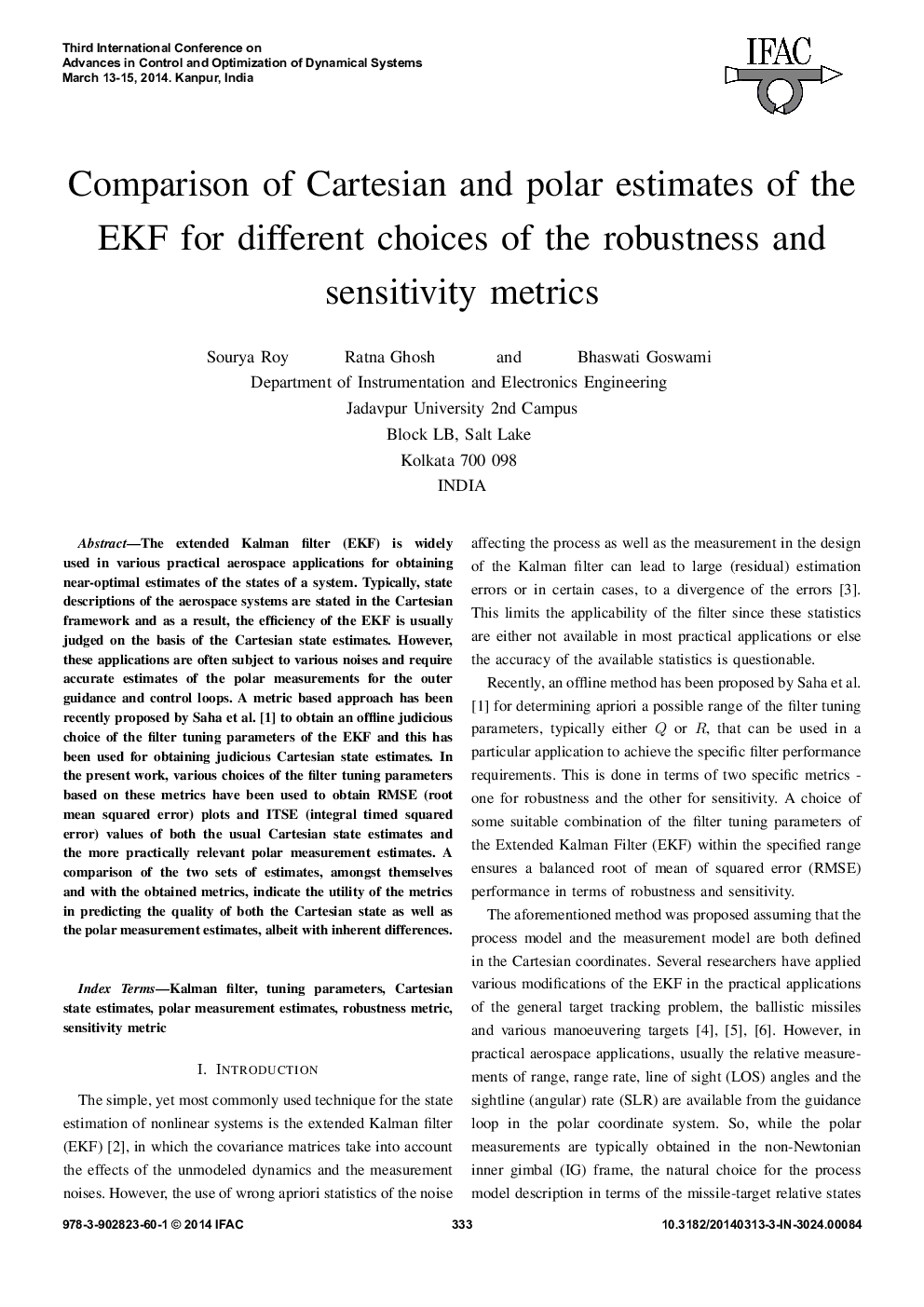| Article ID | Journal | Published Year | Pages | File Type |
|---|---|---|---|---|
| 713380 | IFAC Proceedings Volumes | 2014 | 7 Pages |
The extended Kalman filter (EKF) is widely used in various practical aerospace applications for obtaining near-optimal estimates of the states of a system. Typically, state descriptions of the aerospace systems are stated in the Cartesian framework and as a result, the efficiency of the EKF is usually judged on the basis of the Cartesian state estimates. However, these applications are often subject to various noises and require accurate estimates of the polar measurements for the outer guidance and control loops. A metric based approach has been recently proposed by Saha et al. [1] to obtain an offline judicious choice of the filter tuning parameters of the EKF and this has been used for obtaining judicious Cartesian state estimates. In the present work, various choices of the filter tuning parameters based on these metrics have been used to obtain RMSE (root mean squared error) plots and ITSE (integral timed squared error) values of both the usual Cartesian state estimates and the more practically relevant polar measurement estimates. A comparison of the two sets of estimates, amongst themselves and with the obtained metrics, indicate the utility of the metrics in predicting the quality of both the Cartesian state as well as the polar measurement estimates, albeit with inherent differences.
